DEPARTMENT OF
After Bangladesh’s independence in 1971, rebuilding the war-torn nation with limited resources and an unskilled workforce was a major challenge. Over time, sectors like agriculture, tourism, foreign remittance, IT, and especially Ready-Made Garments (RMG) emerged as key contributors to economic growth. RMG now accounts for 83% of the country’s total export earnings and directly employs over 4 million people, with more than 10 million involved throughout its value chain. The global recognition of the “Made in Bangladesh” label has increased demand for skilled professionals in apparel, textile, and fashion industries—needs currently met in part by foreign hires.
To address this skills gap, BGMEA University of Fashion & Technology established the Department of Apparel Manufacturing & Technology, offering an undergraduate program that combines technical knowledge with business acumen. The curriculum emphasizes production planning, industrial engineering, ergonomic practices, and quality management. Strong industry linkages and factory visits enrich student learning, equipping graduates to effectively manage and innovate within the apparel sector.
To evolve into a globally integrated technical department contributing towards technical education, technical consultancy, research, leadership and corporate excellence.
M 1: The essence of the Department of Apparel Manufacturing & Technology is to constantly strive to provide an in-depth knowledge to its students so that they add value to the existing treasures of apparel manufacturing technology concepts.
M 2: Promote lateral thinking and a spirit of enquiry among its students so that they look from a different angle through a creative approach by which they are able to provide simple solutions to complex technical problems in apparel manufacturing and allied textile sectors.
M 3: To deliver through its teaching-learning process the richness of apparel manufacturing technology and multidisciplinary knowledge in a way where ethics and social commitments will be the cornerstone for its students.
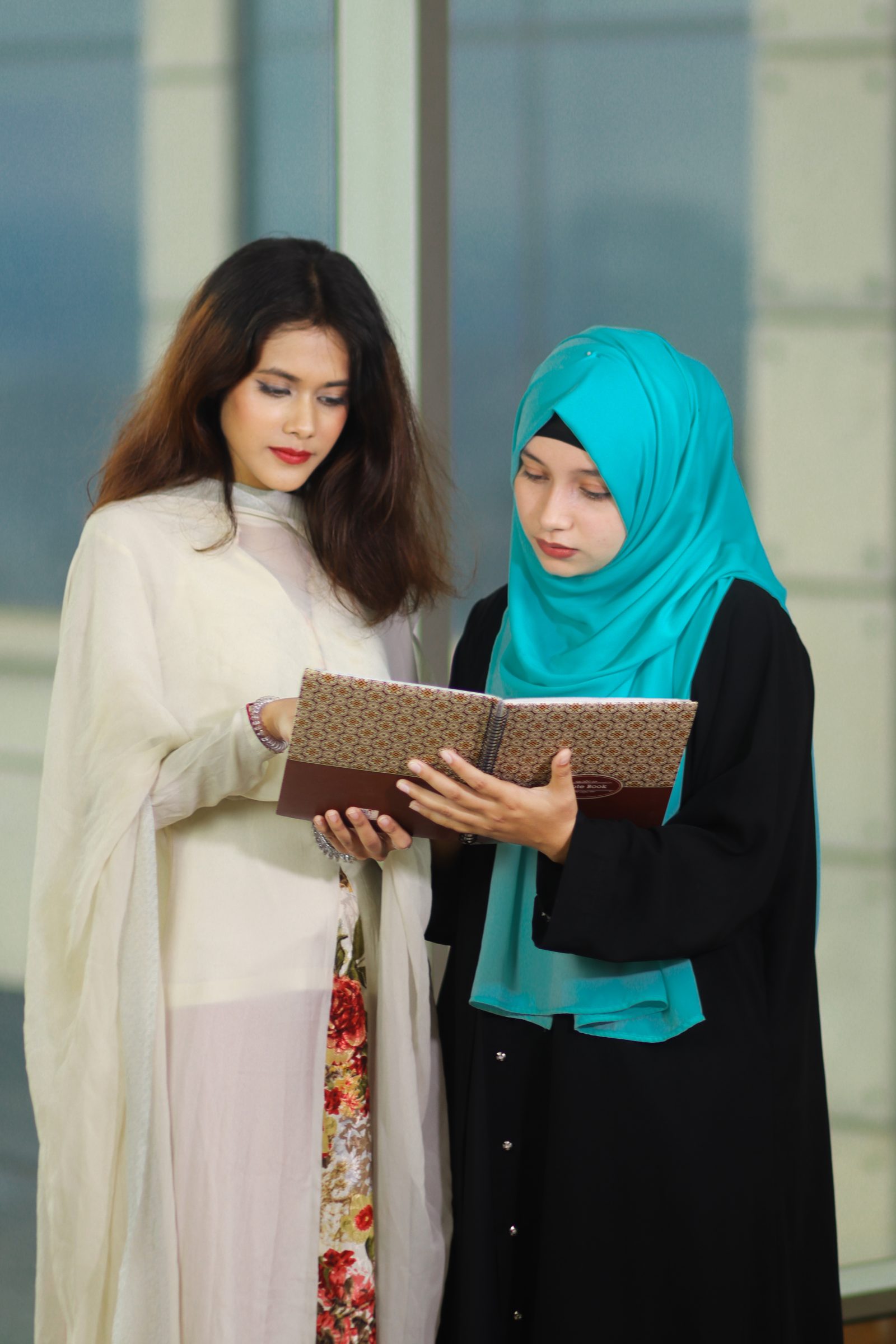
Humanity – AMT not only makes its students graduates but also strives to make them humane.
Discipline – Discipline remains the corner stone of continuous success stories of AMT.
Morality – Morality is innate. AMT helps nurture it and develops its students as quality technologists with morality.
Quality – AMT keeps focusing on quality education with inspiration to life-long learning so that its graduates are recognised in the world and can prove their acquired knowledge.
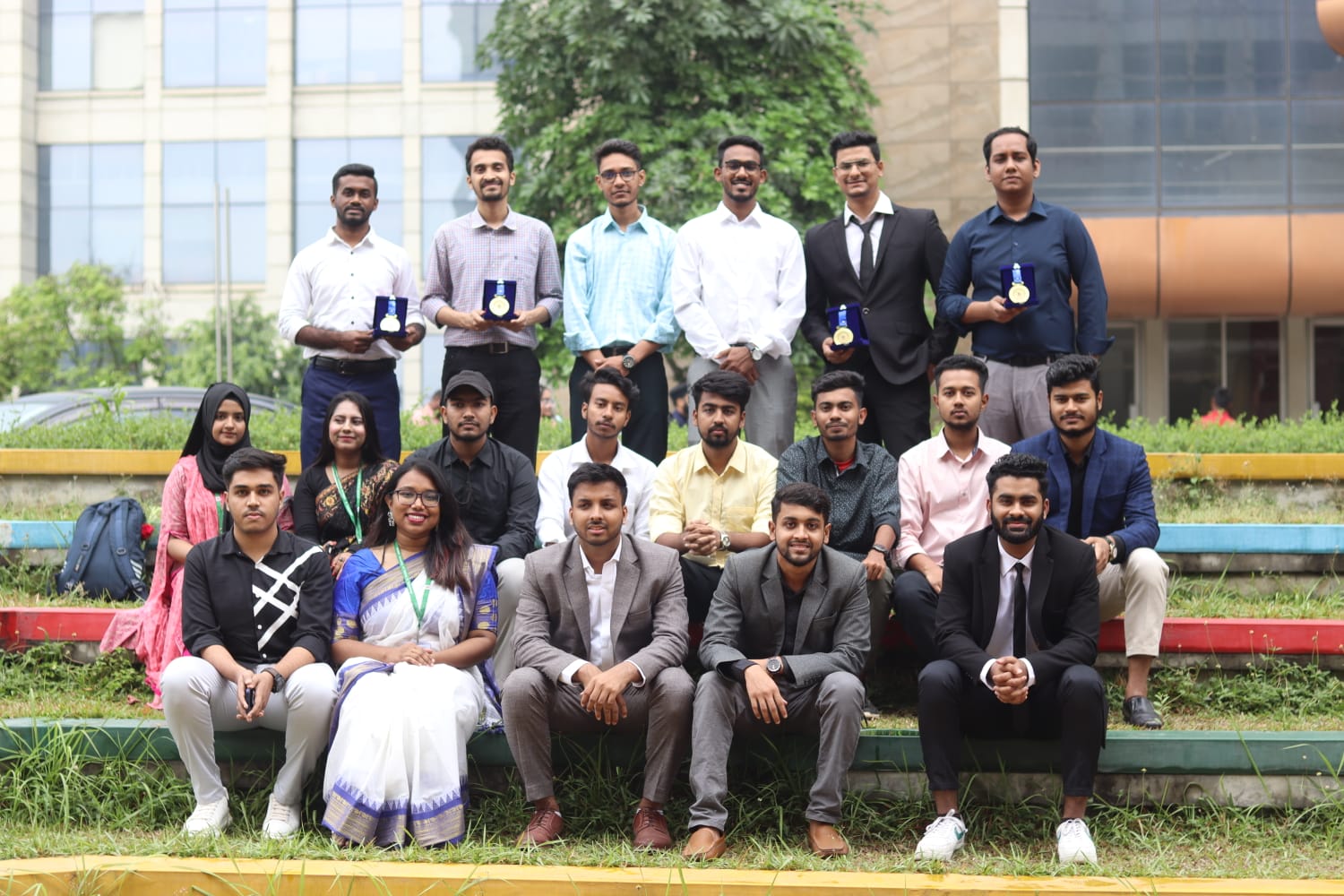
Career pathways for graduates on Bachelor of Science in Apparel Manufacturing & Technology program are Teaching, Merchandiser, Supply Chain Manager, Factory Manager, Production Manager, R&D Manager, Planning Manager, Country Manager, Washing Manager, Entrepreneurs, Apparel Technician, Product Developer, Sample Developer, Garment Technologist, Pattern Master, Quality Controller, Welfare Officer, Wash Technician, etc.
Knowledge and skill in knitwear manufacturing, fashion design, textile engineering along with the learning from interdisciplinary minors and the general electives chosen, shall further increase the scope of becoming a multifaceted professional in various segments of apparel, textile and fashion industries.
The Bachelor of Science in Apparel Manufacturing & Technology is an eight-semester (145-credit) program designed to prepare students for diverse roles in the apparel industry. It offers specializations in apparel product development, construction, and business management, with a focus on cotton, blends, and synthetic garments such as menswear, womenswear, children’s wear, and sportswear.
Students gain hands-on skills in pattern design, garment construction, cutting, assembling, and finishing. The program also covers production management, sustainability, marketing, merchandising, supply chain, and quality control. Emphasis is placed on environmental responsibility, including energy and water conservation, recycling, and circular economy practices.
Strong focus is given to communication and leadership, developing students’ abilities in public speaking, writing, teamwork, emotional intelligence, and professional ethics. The curriculum is structured into Majors, Deepening Specializations, Interdisciplinary Minors, and General Electives, allowing flexible and tailored learning paths.
Graduates are equipped with both technical and managerial expertise, ready to lead in apparel design, manufacturing, and business operations.
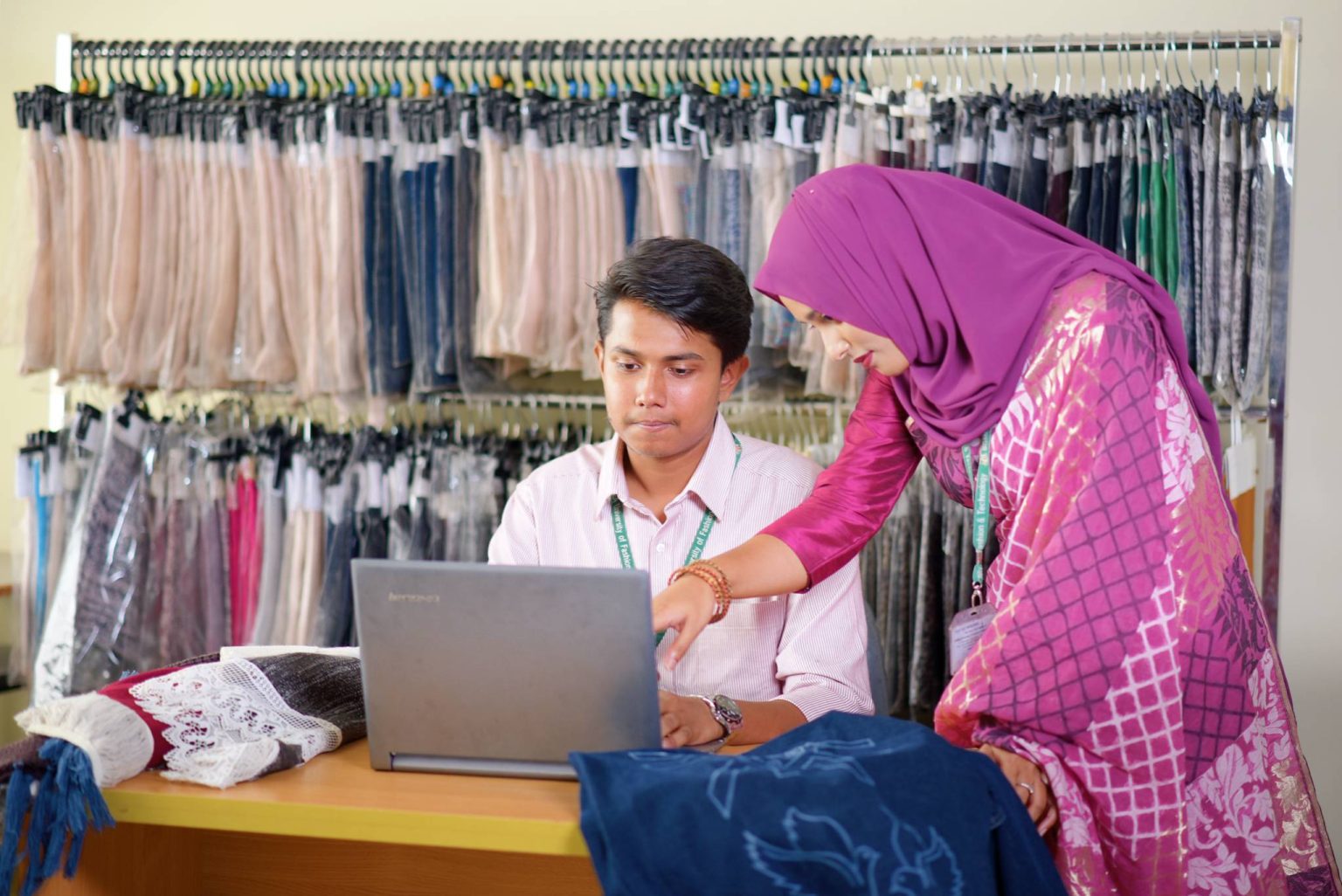
The objectives of B.Sc. in Apparel Manufacturing & Technology program are as follows:
PEO 1: Graduates of B.Sc. in Apparel Manufacturing & Technology program will have increasing responsibilities/advancement in positions in ready-made garment industries, textiles and allied sectors such as product development, production, productivity improvement, technical services, quality assurance and marketing.
PEO 2: Graduates of B.Sc. in Apparel Manufacturing & Technology program will become successful entrepreneurs/business partners in ready-made garment industries, textiles and allied sectors by starting new ventures/expansion of existing family business/product diversification, and contributing to societal, technological and industry development.
PEO 3: Graduates of B.Sc. in Apparel Manufacturing & Technology program will be engaged in life-long learning and professional development through participation/resource persons/publications in conferences, workshops, seminars, or pursue specialized studies in technical and engineering domains.
Contemporary technical knowledge of the subjects,
Problem solving skills,
Design and development of solutions skills,
Investigative and analytical skills,
Modern tool usage skills,
People Management skill,
Emotional intelligence,
Coordinating with others,
Negotiation skills,
Environment and sustainability,
Ethics, integrity and citizenship,
Interpersonal, team-building and communication skills,
Skill to work with people and ability to instruct,
Participation skills,
Ability to present oneself as a resource person,
Ability to make publications in conferences/workshops/seminars,
Ability to pursue specialized higher studies.
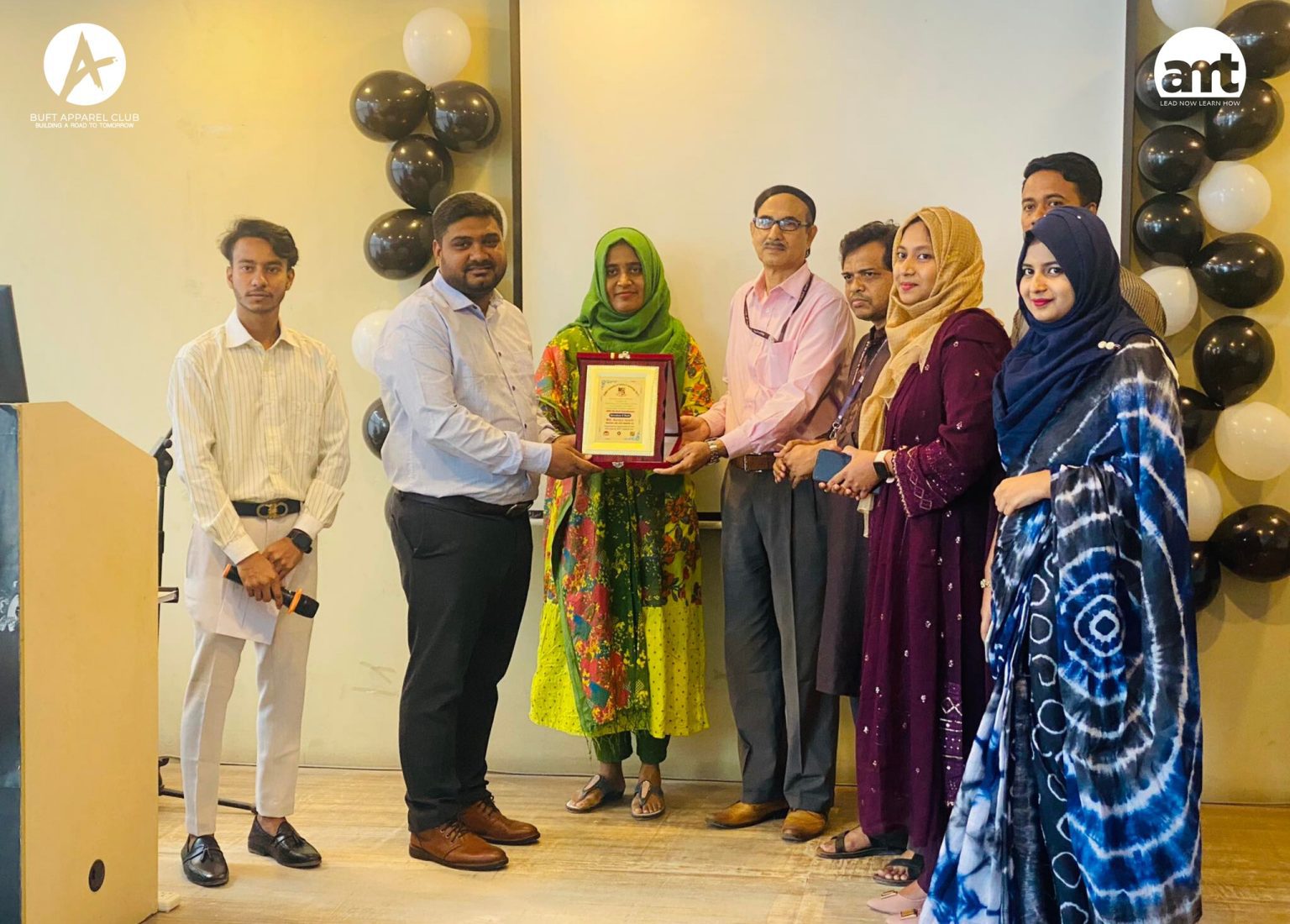
B.Sc. in Apparel Manufacturing & Technology graduates will be able to:
PLO 1 Contemporary Technical Knowledge: Apply the contemporary knowledge of mathematics, science, technical fundamentals, and a technical specialization to the solution of complex apparel manufacturing technological problems such as production prediction, manpower requirement estimation, lead-time calculation, costing and pricing.
PLO 2 Problem Solving & Analysis: Identify, formulate, review research literature, and analyze complex technical problems reaching substantiated conclusions using first principles of mathematics, sciences, statistics and contemporary apparel manufacturing technological knowledge such as challenges of mass production, employee turnover, process optimization, cost reduction, productivity improvement and supply chain management.
PLO 3 Design & Development of Solutions: Design solutions for complex technical problems and design system components or processes that meet the specified needs with appropriate consideration for the public health and safety, and the cultural, societal, and environmental considerations.
PLO 4 Conduct Investigations of Complex Problems: Use research-based knowledge and research methods including design of experiments, analysis and interpretation of data, and synthesis of the information to provide valid conclusions.
PLO 5 Modern Tool Usage: Create, select, and apply appropriate techniques, resources, and modern technical and IT tools including prediction and modeling to complex technical activities with an understanding of the limitations.
PLO 6 The Technologist & Society: Apply reasoning informed by the contextual knowledge to assess societal, health, safety, legal and cultural issues and the consequent responsibilities relevant to the professional technical practices.
PLO 7 Environment & Sustainability: Understand the impact of the professional technical solutions in societal and environmental contexts, demonstrate the knowledge of, and need for sustainable development.
PLO 8 Ethics: Apply ethical principles and commit to professional ethics, responsibilities, and norms of the technical practices.
PLO 9 Individual & Teamwork: Function effectively as an individual, and as a member or leader in diverse teams, and in multidisciplinary settings.
PLO 10 Communication: Communicate effectively on complex technical activities with the technical community and with society at large, such as, being able to comprehend and write effective reports and design documentation, make effective presentations, and give and receive clear instructions.
PLO 11 Project Management & Finance: Demonstrate knowledge and understanding of the technical and management principles and apply these to one’s own work, as a member and leader in a team, to manage projects and in multidisciplinary environments.
PLO 12 Life-long Learning: Recognize the need for, and have the preparation and ability to engage in independent and life-long learning in the broadest context of technological change.
Enter your email address to get the latest University news, special events and student activities delivered right to your inbox.
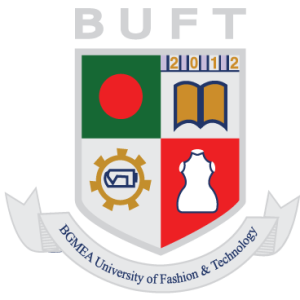
Copyright©BUFT